Obitun: Initiation of girls into womanhood in Ondo Town
The people of Ondo inhabit the south western region of Nigeria and are one of the largest subgroups of the Yoruba ethnic group. Ondo people live as one big family because they are bounded by the same historical background, traditions and cultural heritage which defines who they are. The culture and traditions of Ondo people are very rich, fascinating and exciting as well.
In the heart of Ondo town, the Ekimoguns, as the Ondo people are called, celebrate the transition of their girls into womanhood through a festival-like rite known as ‘Obitun’ which means ‘new woman’. The Obitun festival performed in the olden days of the Ondo people is a way different from the modern Obitun cultural dance now performed as a mere entertainment during public functions. It is only the dancing aspect of the old Obitun that was retained by modern sons and daughters of Ondo, the initial rite and intention of Obitun has gone into extinction. In the olden days of Ondo people, Obitun was believed to be a sacred rite, and a very important milestone in the lives of young but matured girls. They believed that for a girl to become a woman, she must go through Obitun, otherwise, bad lucks and problems such as barrenness and broken marriage would befall her.

But today, owing to Western education, christainity and some other religious beliefs, most families in Ondo do not consider Obitun important for their daughters before being acknowledged as a woman and getting married. But nevertheless, the Obitun tradition still thrive among some set of the Ondo people even though it is being threatened by extinction.
Back in the early days, Obitun festival was usually held for a week. The girls initiated during the festival were treated with extra care and love. They were beautifully dressed and decorated with exquisite beads and camwood face paintings. Part of Obitun costume are horsetails, fans and beaded wallets which is worn across the shoulders.

Throughout the Obitun festival, the initiated girls were not called by their names, instead, they were called ‘Obitun’ which means new woman. There were usually plenty of foods at Obitun festival; the most common of all is pounded yam and okra soup. These foods were offered as sacrifice to the spirits of the newly initiated girls (Obitun) to guide them in their journey to womanhood. On the last day of the festival, the newly initiated girls would all together dance round the town stopping at some important places such as the houses of their relatives where they would be praised and lavished with gifts. They would also stop at some shrines such as Ogun lei, and Ogun Aisero in Ododibo and Odojomu to give final thanks to their creator.

In recent times, all these aspects of Obitun has been scrapped out leaving only the dance session. The Obitun cultural dance of Ondo people is now performed by cultural dance troops just to entertain people at ceremonies.
Thanks for reading,
OldNaija.com
Photo Credits:
- Olashore International School, Osun State
- Official website of Ondo State Government
Questions? Advert? Click here to email us.



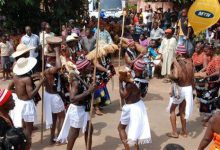
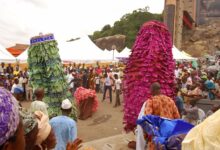

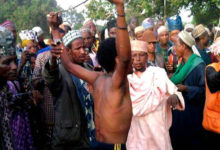
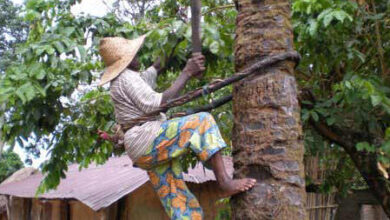
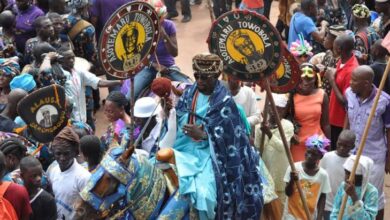
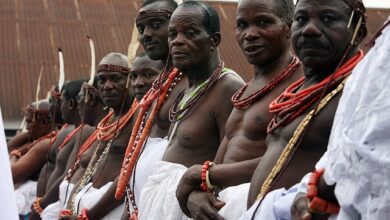
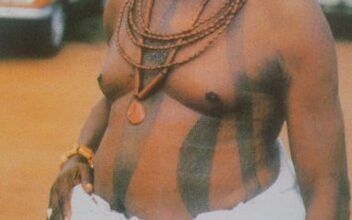
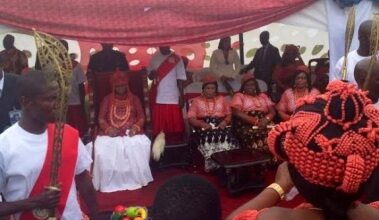
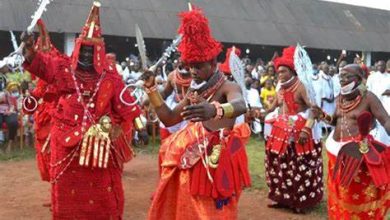

Sadly, Obitun is not the only part of Yoruba culture that is faced with extinction…nice read here. Well done. I salute your efforts to keep reminding us of our history and roots.
Seriously, most Yoruba cultures are facing extinction or rather getting edited, subconsciously, in many aspects. We really need to teach our children and younger ones.
Thank you for your visit and kind words, Enioladunni. It’s an honour having you here. Kindly do check back; trust you!
i was watching a programme sometimes ago, a dance of the Yoruba culture was been practised in Cuba. the Cubans gave it ordinance and respect. even though it originated in Nigeria am not sure it is been practised anymore. so many more of our cultures have gone into extinction but who will raise them again? is it me as an engr or my fellow sisters in the banks or those that doesn’t even understand these cultures. now it is embedded in books and blogs for us to read.
kudos to u lee. keep up the good work
Thank you brother. I’m very glad you’re here. Yes, you are right. Many of our cultures are still being practised in Cuba and Brazil. Even the go to the extent of worshiping our gods. They worship chango (sango) ochun (osun) and so on. These people can even teach a Yoruba person his/her culture. All we need to do is just to wake up from our deep slumber that seems to last forever.
“who will raise them again? is it me as an engr or my fellow sisters in the banks or those that doesn’t even understand these cultures.”
You are right, brother. That is an important question to ask, and that is also why OldNaija is here; to preserve and promote us. Nigerians can also add to this mission by teaching the little they know to the younger ones. A drop of water makes a mighty ocean.
Strikey, I am really happy and proud to have you here, I really am. Thank you for your visit and touching words. Kindly visit some other time.
its a good and great work of yours.more grace nd more ink 2your pen.but there some culture in yoruba land i disagree with but for yoruba language i can do without speaking it.omo yoruba atata nimi
Amen! Yes, you’ve spoken well. The ones with human sacrifice clause are indeed barbaric and I disagree with them too. Omo Yoruba atata ni emi naa. Eseun Alagba Ademot. A o ma ri yin ba o.
This is a very important thing you do here. We are very lucky to have you Akewi. How else will we or the future learn of our very rich albeit extinct culture? I hope you pass the baton down. Wa gbo, wa to, wa dagba!
Amin ase Edumare ????????Eyin naa a pe fun wa ma, lalafia ara. Thanks for always being here ma.
Amin Ase.????
I am currrently writing a paper on Obitun Cultural dance, and i am amazed with what i have seen so far, we have really abadoned our culture.
I would appreciate if i can get more information from you.
Thank you.
Thank you for your visit and kind comment, Deborah. You can get in touch with us via our email at [email protected] for more information on Obitun cultural dance.